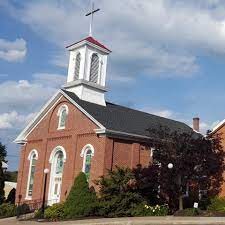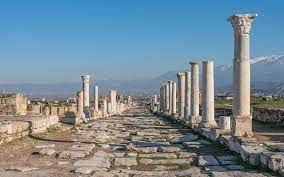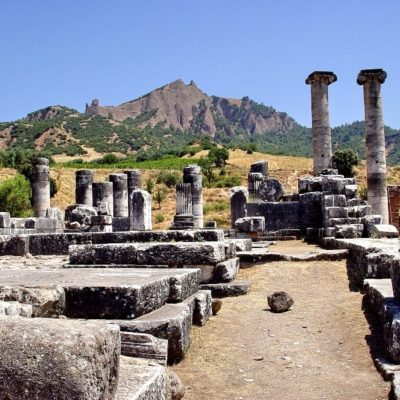Netherlands Reformed Congregations

The Netherlands Reformed Congregations is also referred to as the Dutch Reformed Church. It is a Protestant Christian denomination that is based on the teachings of John Calvin. They are a conservative denomination that originated in the Netherlands in 1830. A small group in the Netherlands broke away from their state church and immigrated to South Holland, Illinois in 1865. They then immigrated to Grand Rapids, Michigan in 1870.
The Netherlands Reformed Congregations were a part of the Liberated Reformed Churches until there was an ecclesiastical conflict in 1967 to 1969. The conflict was over the meaning of the Heidelberg Catechism and the doctrine of the church concerning the dialogue with other churches. It was because of this divisive issue, that ministers were fired and congregations were expelled.
The Netherlands Reformed Congregations merged with the Evangelical Lutheran Church in the Kingdom of the Netherlands in 2004 and formed the Protestant Church in the Netherland.
History
The Netherlands Reformed Congregations was the oldest Reformed church in the Netherlands. The Dutch Reformed Church was never a state religion, even though it was a law that every person in public positions should be a communicant member of the Church.
The Dutch Reformed Church was in existence during the Reformation. The Netherlands Reformed Congregations were persecuted by the Roman Catholic government in the Netherlands in the sixteenth century. The Roman Catholic government labelled them as “rebels against the faith”. Most of its leaders fled out of the country to Germany when religious violence occurred during the Reformation. The Synod of Emden was considered the starting point for the denomination of the Dutch Reformed Church and was held in Emden Germany October 1571.
There were immigrants from the Netherlands that came to America to practice their faith following Dominie A.C. Van Raalte and Holland, Michigan was founded to enable their Christian life. The Reformed Church of America was already established in New Netherland before the first of the emigrants arrived in the 1840’s. They kept their church separate from the Reformed Churches of the East.
There were two Reformed Churches in Michigan that formed the Christian Reformed Church. The split of these two Churches occurred because of a disagreement over the use of hymns in place of Old Testament psalms during the church service, and the allowance of non-church members to participate in Communion. The Christian Reformed Church opposed allowing church members from participating in secret lodges like the Freemasons, and there was a conflict about whether education should be by public or religious schools.
The Netherlands Reformed Congregation started in the United States around the 1850’s. The Dutch immigrants arrived in Rochester, New York and Grand Rapids, Michigan. The Reverend Cornelius Kloppenburg, from OudVosmeer, Netherlands, was one of the first Ministers to arrive from the Netherlands to Rochester, New York. He later settled in Grand Rapids, Michigan and began to organize the congregation.
A few months after the organization of the congregation there was a conflict about the governing body of the congregation and all those holding office were discharged. On May 3, 1871, a new governing body was elected. The congregation had a new building and new parsonage by November 24, 1873. Because of the failing health of the Reverend Cornelius Kloppenburg in May 1875, he notified the governing body it was time for him to depart. He suggested the congregation remain affiliated with the mother church, the Christian Reformed Church in the Netherlands. This was approved and they obtained assistance and counselling from the mother church.
They used the Dutch language until after 1920. They were against mixed marriages, divorce, and abortion. They lived simple lives and disagreed on extravagance. Women were expected to continue traditional roles like wives, mothers, and housekeepers.
The Christian Reformed Church established their own schools. The first was Van Raalte’s Pioneer School which later became Hope College.
Belief
The Netherlands Reformed Congregations believe in the basic of truth in the Triune God and Bible as His infallible Word. They believe all their core beliefs must be based on the principles that are in the infallible sacred Scripture.
The Netherlands Reformed Congregations believe the Bible is not the reflection of the will of man, but that holy men of God spoke as they were inspired and moved by the Holy Spirit. They believe the Bible is the complete and only infallible Word of God that is delivered to mankind. They believe that the Word of God provides instruction that is the way of salvation and the everyday life of man in the world. They believe the King James Version of the Bible is the most accurate and sound Version.
The Netherlands Reformed Congregations believe there is one true God, and that He is eternal, invisible, incomprehensible, omnipresent, omniscient, independent, indivisible, and Almighty, perfect in all matters. They believe God has revealed Himself in three distinct Persons as the Father, the Son, and the Holy Spirit. They believe God has revealed Himself too many through general revelation by His creation, His providence, and the conscience of man. They also believe it was His Word, the Holy Bible that has made His special revelation more clear.
The Netherlands Reformed Congregations believe the Word of God teaches the truth about God as well as about man. They believe God created man perfect and righteous and after His own image in knowledge, righteousness and in holiness.
The Netherlands Reformed Congregations believe mankind willingly allow themselves to sin and fall from his holy state with God. They believe now they are born in sin and will die in sin, unless they are regenerated by the Spirit of God. They believe one must find complete salvation in the Mediator, Jesus Christ.
The Netherlands Reformed Congregations believe the Lord Jesus Christ is the one and only Mediator between God and man. They believe Jesus Christ is One Person and is both God and man. They believe He was conceived by the Holy Ghost, born of the virgin Mary, suffered under Pontius Pilate, was crucified, died and was buried. They believe He descended into hell and on the third day He rose again from the dead and ascended into heaven, and sits at the right hand of God the Father almighty. From thence he shall come to judge the quick and the dead. (The Apostles’ Creed).
The Netherlands Reformed Congregations believe in the five Points of Calvinism, the total depravity of man, unconditional election, limited atonement, irresistible grace, and the perseverance of the saints.
The Netherlands Reformed Congregations believe in the Heidelberg Catechism which is a document that is divided into fifty two sections. It was approved in 1563. The Netherlands, National Synods of the sixteenth century adopted it as one of the Three Forms of Unity. There are 129 questions and answers in three parts covering the misery of man, the redemption of man and the gratitude due from man.
The Netherlands Reformed Congregations believe in the Confession of Faith which is known as the Belgic Confession. It consists of thirty seven articles dealing with the doctrines of God, Scripture, man, sin, Christ, salvation, the Church and end times.
The Netherlands Reformed Congregations believe the Canons of Dort, which are one of the confessional standards of the Reformed churches. The Canons of Dort are often referred to as the Five Points of Calvinism.
Cite Article Source
MLA Style Citation:
Holstein, Joanne “Netherlands Reformed Congregations:.” Becker Bible Studies Library Jan 2006.<https://guidedbiblestudies.com/?p=2777,>.
APA Style Citation:
Holstein, Joanne (2006, January) “Netherlands Reformed Congregations:.” Becker Bible Studies Library. Retrieved from https://guidedbiblestudies.com/?p=2777,.
Chicago Style Citation:
Holstein, Joanne (2006) “Netherlands Reformed Congregations:.” Becker Bible Studies Library (January), https://guidedbiblestudies.com/?p=2777, (accessed).


